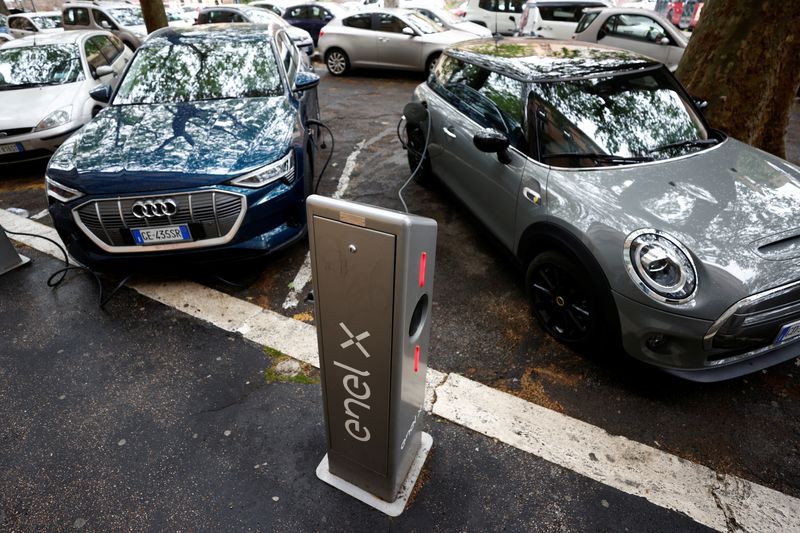BERLIN (Reuters) - The European Union needs to install almost eight times more electric vehicle charging points per year than it did in 2023 to meet forecast demand, European autos group ACEA said on Monday.
There were just over 150,000 public charging points installed last year across the bloc, said ACEA, for a total of more than 630,000.
That is far short of the roughly 410,000 needed annually just for the European Commission to reach its target of 3.5 million by 2030, it said in a statement.
However, demand has quickly outpaced that target, warned ACEA, with EU electric car sales growing three times faster than charging point installations between 2017 and 2023.
"We are very concerned that infrastructure rollout has not kept pace with battery-electric car sales in recent years," said ACEA director general Sigrid de Vries in a statement.
"What is more, this 'infrastructure gap' risks widening in the future – to a much greater extent than European Commission estimates."

ACEA estimated that 8.8 million charging points will be needed by 2030 to meet demand, which amounts to 1.2 million per year - or eight times more than the number installed last year.
"Investments in public charging infrastructure must be urgently ramped up if we are to close the infrastructure gap and meet climate target," added de Vries.